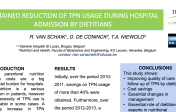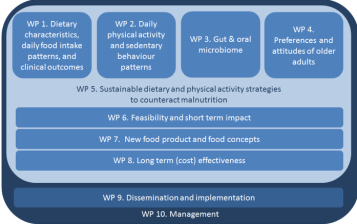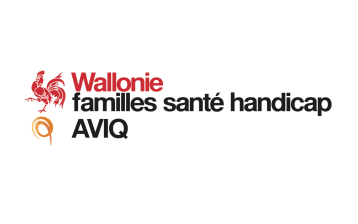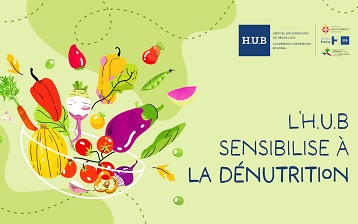
“TPN follow-up by dietitians offers better care and considerable cost-savings.”
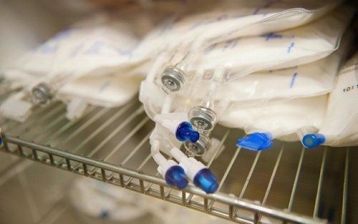
Reasons for high Parenteral Nutrition (PN) usage in a Flemish hospital in Belgium were detected, training of personal (dietitians, nurses) helped to overcome Enteral Nutrition fear. Dietitians improved awareness of EB nutritional care in the multidisicplinairy team and follow up of patients on TPN simultaneously. Instruction tools for doctors and dietitians were developed and refeeding syndrome risk was taken care of. This project is the blue print for a nationwide project that we introduced at the federal government in 2017 to evaluate current TPN care and – costs in hospitals in order to set a standard for optimal nutritional and EB practice care of patients on parenteral nutrition.
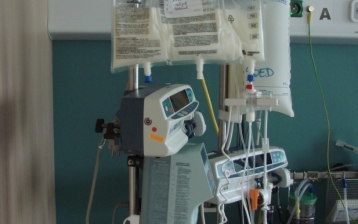
INTRODUCTION
Total parenteral nutrition (TPN) costs and malnutrition are a big financial burden for hospitals. Increased TPN usage and costs and untreated malnutrition in patients had to be addressed. In 2009 a dietitian was appointed for malnutrition screening and monitoring of intramural patients with TPN and a nutritional management team was assembled. In the current study a procedure has been developed to assure optimal clinical nutritional care for all patients (oral, enteral and parenteral nutrition) and screening on malnutrition by EB practice tools.
PURPOSE
Detection and treatment of malnutrition and structured follow up of TPN patients based on EB guidelines and cost savings of 10% in 2010 or 20% in 2010-2011. Since 2012 introduction of a TPN procedure and instruction tools for caregivers and ongoing follow up of TPN use and cost and malnutrition screening results assured sustainment of the approach.
METHOD
TPN usage and costs over the years prior to 2010 were calculated. Causes for improper prescription of TPN were identified. TPN usage guidelines according to EB ASPEN/ESPEN guidelines and procedures were developed. Nursing staff and dietitians were trained in proper administration and follow up of TPN and EN usage in patients. TPN-EN instruction tools for caregivers (physicians/dietitians) were presented and training on the job for dietitian teams/nutrition teams in other hospitals started. Inclusion of enteral and parenteral nutrition expertise in the job description of dietitians follows in 2016.
RESULTS
TPN usage decreased by 52%, cost savings on TPN usage of 53% were obtained and the number of TPN users declined by 45% in 2015 compared to 2010. In 2015 41% of all admissions and 73% of admissions at higher risk units was screened on malnutrition risk, 9% of all hospitalized patients was diagnosed malnourished and treated by dietitians. In 2016 malnutrition risk screening of 79% of hospital admissions > 2 days was realized.
PLAN
The Belgium federal government has approved our submission for a new TPN project which will be carried out by the Belgian Health Care Knowledge Centre (KCE) in 2017 – 2018. It is the intention to evaluate TPN knowledge of health care professionals and TPN procedures in the Belgian context. The results in our study combined with the other data could serve as a benchmark to set a standard for optimal nutritional care and provision of TPN for patients in all hospitals.
Publications
1) Van Schaik R, Van den Abeele Kurt, Melsens G et al A protocol for sustained reduction of Total Parenteral Nutrition and cost savings by improvement of nutritional care in hospitals Clinical Nutrition ESPEN 15 (2016) 114-121
2) van Schaik R, Niewold T.A. Quality improvement and cost savings by dietitians through follow-up of patients with total parenteral nutrition during hospital admission; e-SPEN Journal 9 (2014) 59-62
